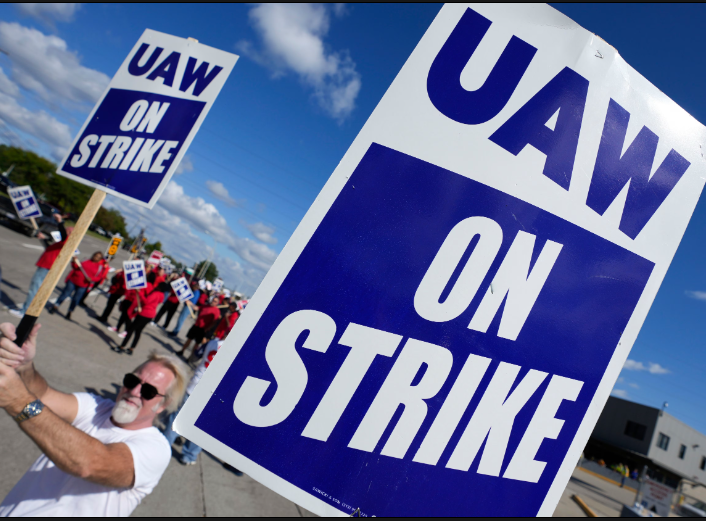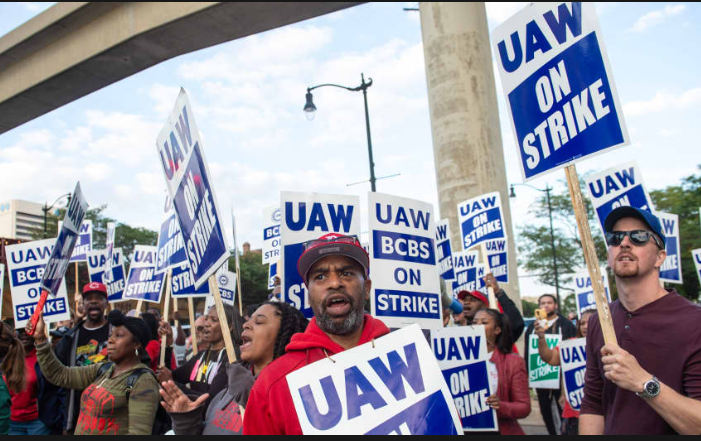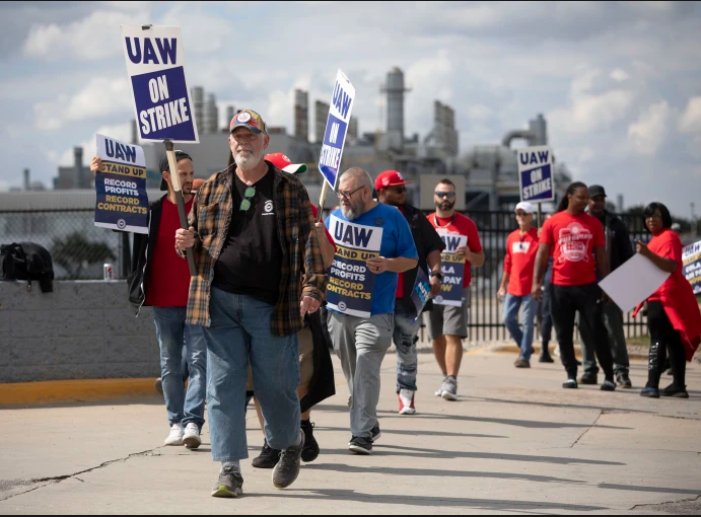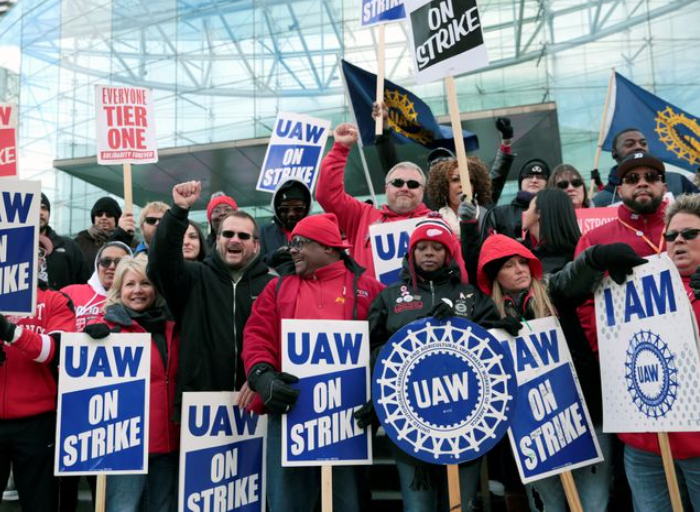A deadline of Friday at noon for the Big Three automakers to demonstrate development in discussions with United Auto Workers(UAW) members on strike.
Friday at noon, the Big Three automakers must demonstrate that their talks with the United Auto Workers’ on strike are moving further. If negotiations fail, the union may decide to picket additional Ford, General Motors, and Stellantis plants.
On Friday at 10 a.m., UAW President Shawn Fain will give a Facebook Live update on the status of negotiations between the union and the automakers.
The union’s demands, which include a 36% wage raise over a four-year contract, annual cost-of-living adjustments, pension benefits for every employee, more job security, and a four-day work week, look to have little chance of being met before the deadline.
The manufacturers contend that they are under pressure to maintain prices as low as possible in order to compete with Tesla and other foreign automakers while also making investments in the quickly expanding electric vehicle market. The businesses indicate that they are open to additional negotiations while claiming that their counteroffers are realistic.

In an opinion piece that appeared in the Detroit Free Press on Wednesday, GM President Mark Reuss warned that “if we don’t continue to invest, we will lose ground—quickly.” The majority of our competitors, who are non-union and found all over the world, “will waste no time in seizing the opportunity we would be handing them.”
On Wednesday, Stellantis, the organization that owns Chrysler, Dodge, Jeep, and RAM, issued a counteroffer, which the union said it was examining.
What is the UAW seeking?
Additionally, the UAW wants to restrict the use of temporary workers, increase paid time off, and strengthen job rights like the right to strike over factory closures.
The union claims that while workers did not receive the same advantages, the Big Three pocketed substantial profits as automobile prices rose during the pandemic.
Fain stated in a video earlier this week that “autoworkers have waited long enough for the Big Three to make things right.” We don’t waste time waiting or playing about.

Last Monday, President Biden endorsed the demand for a higher proportion of industry earnings made by the striking autoworkers.
Companies have made some sizable offers, but Mr. Biden believes it should go farther to ensure that record corporate earnings translate into record contracts.
Standing up strike
After talks between the automakers and the UAW ended without a new labor deal being reached before their contract with union members expired, the so-called stand-up strike that was aimed at a few specific car facilities began on September 15.
In response, automakers announced temporary layoffs at certain factories, starting with Ford Motor, which on September 15 – just hours after workers at the factory walked off the job – temporarily fired 600 non-striking employees at its assembly plant in Wayne, Michigan.

Due to the ongoing strike, Stellantis stated on Wednesday that it was temporarily laying off 68 employees at a plant south of Toledo. Additional layoffs are anticipated at Stellantis’ transmission plant in Kokomo, Indiana. Since the plant in Kansas City, Kansas, depends on parts from the Wentzville operation, GM announced that it will lay off 2,000 people there.
The $825 million strike fund of the UAW will now be used to pay the workers from those plants.
According to experts, the UAW strike’s effects on the economy may go beyond the car sector. A three-week work stoppage might cost the American economy $415 million, according to a projection from The Perryman Group.
Click here, to know more about UAW.
Image Source: Google, Instagram




































